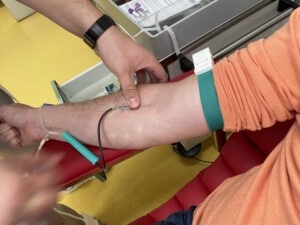
It’s vital to learn how to reduce stress in your life and especially if you have a Cancer diagnosis. Self-care Practices like meditation, yoga, walking, stretching and an exercise routine along with a healthy diet and time in nature are just a few of the self-care techniques to get your stress in check.
Stress has long been suspected of encouraging the spread of cancer.
While Scientists have made a major breakthrough in preventing and treating cancer, they have now proved that stress helps the disease to spread.
Stress is hard to avoid in life, but it can be magnified and multiplied following a cancer diagnosis.
Doctors have long suspected stress enables cancer to spread around the body – known as metastasis – triggering a vicious circle, but exactly how it worked was a mystery.
However, US-based scientists state they have now cracked the code. A scientific team discovered that when stressed, white blood cells known as neutrophils eject DNA and form sticky, web-like structures. These sticky webs, known as neutrophil extracellular traps, or Nets, are usually an essential part of the immune system, and usually help bind and kill invading microorganisms.
However, when it comes to cancer, they appear to create a metastasis-friendly environment.
Neutrophils are part of the body’s immune system
‘Stress is something we cannot really avoid in cancer patients,’ said co-author of the study, Dr Xue-Yan
‘You can imagine if you are diagnosed, you cannot stop thinking about the disease or insurance or family. So it is very important to understand how stress works on us.’
The team made the discovery by mimicking chronic stress in mice with cancer. First they removed tumors that had been spreading cancer cells to their lungs, then exposed them to stress.
‘[We] saw this scary increase in metastatic lesions in these animals,’ said Professor Mikala Egeblad, from Cold Spring Harbor Laboratory in New York. ‘It was up to a fourfold increase in metastasis.’
Further investigation showed that stress hormones called glucocorticoids act as a trigger on the neutrophils, prompting them to expel DNA and create the Nets.
The study also found that chronic stress even caused Net formation to modify lung tissue in healthy mice.
‘It’s almost preparing your tissue for getting cancer,’ said Professor Egeblad.
Co-author of the study, Professor Linda Van Aelst said: ‘Reducing stress should be a component of cancer treatment and prevention.’
The team hopes that future drugs that prevent Net formation could slow or stop cancer spreading in patients.
The study is published in the journal Cancer Cell.





































